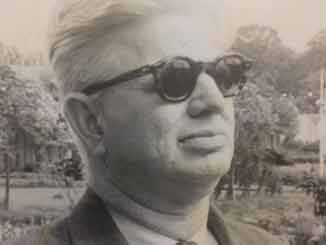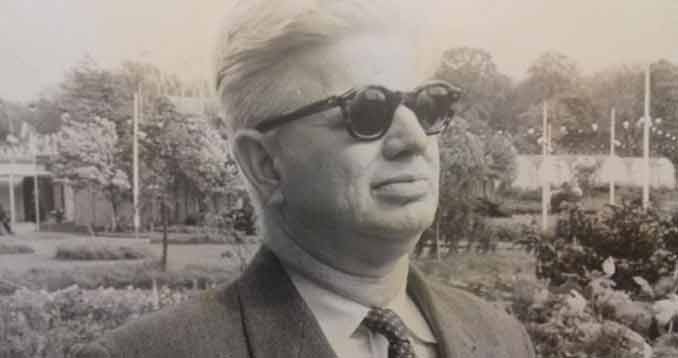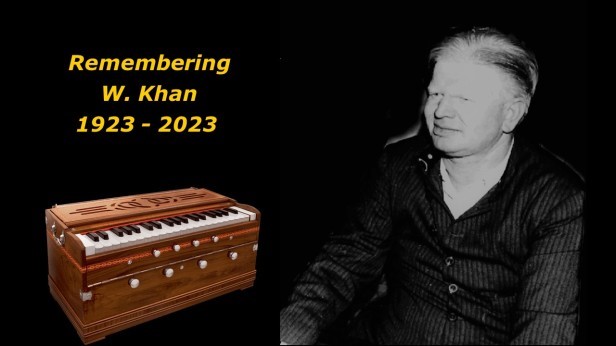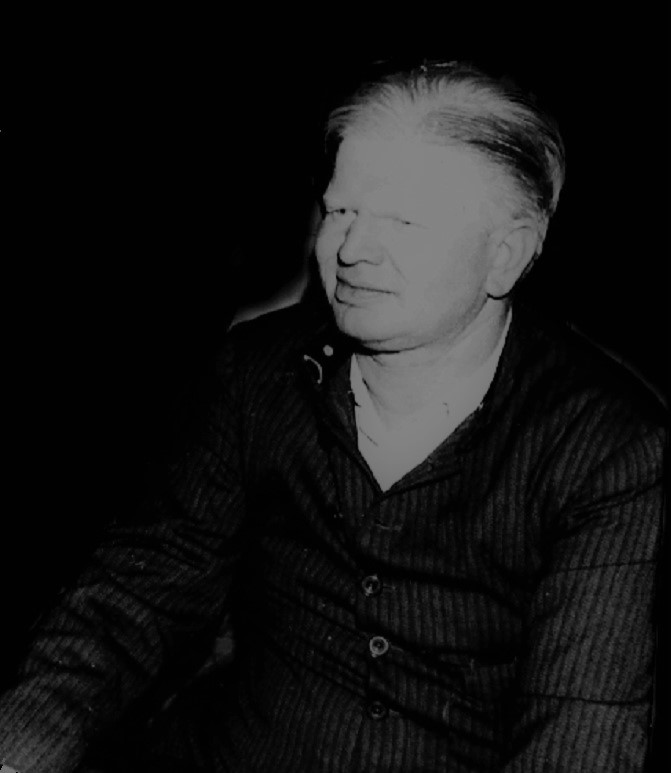

W. Khan and his love affair with the harmonium
This 12 July marks the 100th birthday of an airline executive who died young – an accomplished Urdu poet and, above all, “an amazing practitioner of Indian classical music” who elevated the humble harmonium to a solo instrument
By Siraj Khan
Sapan News It was love at first sight – or sound – for young Wahajuddin Khan when he first heard the harmonium. He was nine years old, probably at some event in Raipur in the state of Chhattisgarh, British India. His parents agreed to buy him one, but expecting his interest to be short-lived, they didn’t engage a teacher.
Self-taught
With a natural ear for music, the boy began playing around with the instrument. By the time he was 12, he had taught himself to play several raags – a unique and central feature of the classical Indian music tradition, a melodic framework for improvisation. While still in his teens, W. Khan, as he would later be popularly known, participated in his first music conference as a harmonium soloist in Allahabad, 1941.
The only child of Nawab Minhajuddin Khan and Anwar Jahan Begum, Wajahuddin was born in Raipur on July 12, 1923. As an albino, he grew up with the limitations related to this condition, including vision. Yet he went on to combine an active life of performing arts – including representing Pakistan, post-Partition, overseas – and the demands of a successful working life.
His photographic memory allowed him to effortlessly remember names, telephone numbers, addresses, roads, birthdays, authors, and almost anything really. Later, he acquired a working knowledge of Dutch while holding various positions at the Dutch airline KLM’s Pakistan operations.
At Laurie Municipal High School, Raipur, a close friend and classmate was Habib Tanvir, who became one of India’s top playwrights and theatre directors. After Matriculation in 1940, Tanvir joined Aligarh Muslim University, while W. Khan pursued a Bachelor’s in English, History and Urdu with Persian at the University of Lucknow, 1943. He then completed his Master’s in English at the University of Allahabad, along with a diploma in Indian classical music in 1945.

The family migrated to Pakistan in October 1947, but Habib Tanvir and W., as friends called him, remained in regular contact mostly through letters and occasional telephone calls. W. Khan also visited India several times, circumventing the visa difficulties. Habib Tanvir was only able to visit Pakistan many years later, in the 1990s, at the invitation of Ajoka Theatre in Lahore.
Unfortunately, W. Khan had passed away by then, his life cut short by a heart attack in November 1978, probably due to excessive smoking, his one negative habit I can remember. He was 55.

A son’s love letter
I was 27, the eldest of four siblings, when our father W. Khan passed. He would have turned 100 on 12 July this year. This is the first time that I am writing about him and his love affair with the harmonium.
Invented in Europe, the instrument first reached India in the 19th century, arriving in Calcutta. It has since been virtually reborn as an Indian – or Southasian – instrument. The harmonium’s qualities suited it very well for the newly reformed classical music of the early 20th century. It is easy to learn and supports group singing and large voice classes. It is loud enough to produce drone notes even in a concert hall and provides a template for standardised raag grammar.
The legendary Rabindranath Tagore initially used it to compose many of his songs but later fell out of love because of its musical limitations. He then condemned it outright and forbade its use at his residential school, Santiniketan.
Some connoisseurs of Indian classical music still prefer the Sarangi as an accompanying instrument for khayal singing.
However, the harmonium remains popular in classical and folk music, besides devotional traditions and film music, because of the musical foundation it provides for base melodies. No other musical instrument integrates so closely with Southasia’s musical culture, irrespective of genre, although the invention of the electronic keyboard has dented its popularity.
The very idea of using this humble organ as a solo instrument may be anathema for music purists, but W. Khan took it to the next level. His proficiency as a harmonium soloist earned him invitations to perform at music conferences in India, like Dover Lane Music Conference in Kolkata and ITC Sangeet Sammelan, New Delhi. He also performed in Bangladesh and several times at BBC London and for Voice of America.

‘Mega artiste’
Those who have watched him play still remember his performances. Among them is Rashid Latif, 92, former Federal Secretary of Information and Broadcasting, Pakistan, who has also headed recording labels EMI Pakistan and Shalimar in Pakistan.
- Khan was a “mega-artiste” who could create amazing notes and melodies on the spot,” recalls Latif from his base in Toronto. Above all, he remembers the mind-boggling speed with which W. Khan’s fingers flew over the harmonium keys. “During his live performances, those fingers did not seem to belong to a human being,” adds Latif, comparing W. Khan’s fingers on the harmonium to “a hummingbird’s fluttering wings that create the hallucination of a high-speed electric fan” where you can’t see the blades of the fan, just a translucent circle.
Remembering W. Khan’s harmonium performances even today, “I cannot be sure whether he had five fingers or five hundred,” adds Latif. “To me, the entire act of W. Khan playing the harmonium and creating the sound that emerged seemed surreal.”
Music for all
Additionally, my father, for years, created and managed something unique. Every Sunday, our home would turn into an open house, or baithak as we called it, where anybody could come and perform or just listen – if they could find a place to sit.
On that day, we would move all furniture aside, turning our drawing room into an open hall. My mother had trained us well, and we knew exactly what to do. It took us just 15-20 minutes to set it up, covering the carpet with white sheets called chaandni, with gaao takias to lean against and floor cushions to sit on.
No need to ring a doorbell or knock to enter. Unlimited rounds of hot tea. Ubiquitous cigarette smoke and overflowing ashtrays, going unnoticed in those days. The problem was with cars parked outside and in front of our neighbours’ gates.
I have had the privilege to witness the subcontinent’s top artists perform at this intimate setting – Iqbal Bano, Roshan Ara Begum, Farida Khanum, Habib Wali Mohammed, composers Nisar Bazmi, Sohail Rana, Deboo Bhattacharya, Ustad Ziauddin, Ustad Imdad Hussain, Ustad Sharif Khan Poonchwala, Ustad Hamid Hussain on sarangi, with the accompaniment of Ustad Shahamat Ali Khan, Bibay Khan and Peer Mohammad on tabla, just to name a few. From India, I can recall Ustaad Naseer Khan (vocal), Ustaad Bismillah Khan (shehnai) and Ustaad Umar Khan from Calcutta (sarod).
I also saw my father encourage aspiring performers by offering them a platform. I still recall Sajjad Haider, the only son of poet Josh Malihabadi, arriving on his motorbike, carrying his sitar, his wife riding pillion.
A regular visitor to these ‘mehfils’ was Zaheer Alam Kidvai, 83, in Karachi, whose family knew mine from the pre-Partition days. He remembers W. Khan as “a very warm and lovable person” and “an amazing practitioner of Indian classical music”.
A retired sea captain and entrepreneur, Kidvai, still has a couple of recordings of my father’s performances.
“He played the harmonium brilliantly as a solo instrument, more often than not, accompanied by that astounding tabla player Shahamat Ali Khan,” says Kidvai. “Of the many musical geniuses that we have heard live, W. Khan was one that our family adored and we were transported to heaven when he played his favourite raags.”
Although never published, my father was also a competent Urdu poet, going by the name Mehzoon Lakhnawi, his takhallus (nom de plume / pen name).
Remembering him on his centennial, here is a stanza from one of his ghazals, reflecting his self-confidence.
Safar kiya safar raahbar ke sahare
Woh jazba e talab ho ke manzil pukare
(What good is travel, done with a guide.
Carry a spirit by which the destination itself calls you)
Born and raised in Karachi, Boston-based Siraj Khan is a connoisseur of Southasian film music, using art and culture to build bridges. He has written scripts and directed music concerts in the US, Southasia and UAE. He serves on the board of several non-profits globally, including the OP Nayyar Memorial Trust, India. He recently co-produced a Telegu film, ‘Mon Ampere’
This is a Sapan News syndicated feature
NOTE, 17 July 2023: Article updated to mention probable cause of death.
Also published in:
South Asia Monitor, Remembering W. Khan and his love affair with the harmonium, 13 July 2023

Leave a Reply